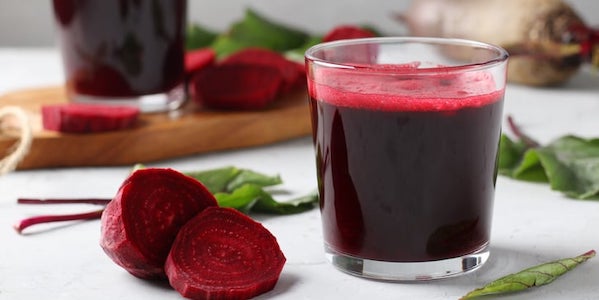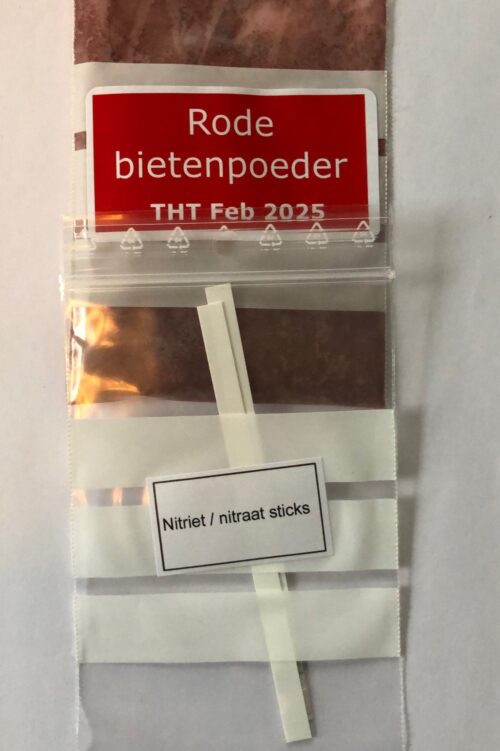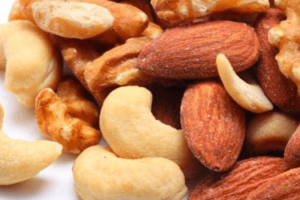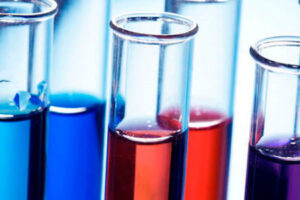A new review observes that combining beetroot juice with nutritional supplements, including caffeine, nitrate and citrulline may provide a synergistic effect to improve exercise performance.
The effect was particularly evident for higher intensity, strength based exercise and following chronic consumption of supplements.
The paper concludes: ‘Few studies have been conducted regarding the combination of beetroot juice with other supplements in recent years. Our analysis indicates that there is evidence of its effectiveness, particularly when exercise intensity is higher.”
“However, there appear to be greater benefits when the combination of beetroot juice with another supplement is consumed chronically.”
Nutrition and Performance
The American College of Sports Medicine (ACSM) emphases that the importance of tailoring supplements and supplements to specific exercise types. Thus the use of ergogenic aids within sports has been ever-increasing over recent years.
The Australian Institute of Sports (AIS) categorizes such supplements depending on the level of evidence demonstrating their impact on athletic performance, with beetroot juice classes as group A due to its high concentration of inorganic nitrate.
After the conversion of nitrate to nitrogen oxide within the body following intakes of beetroot juice, the subsequent bioavailability of nitric oxide is improved and vasodilatation and blood flow to muscle increases. In addition, the presence of beneficial phytonutrients, such as betalains and phenolic compounds, provide significant antioxidant and anti-inflammatory activities to further benefit performance.
Science explained
NO production in the body is of crucial importance for transporting oxygen in the blood, in particular the release of oxygen from hemoglobin.
Beetroot juice has a NO3– concentration of up to 11.4 g/L. After ingestion, it is reduced to nitrite (NO2–) through the action of nitrate reductase enzymes by anaerobic bacteria in the oral cavity. Subsequently, NO2– is instantly converted into nitrous acid in the stomach and then nitrogen oxides (2HNO2 ⇐⇒ H2O + N2O3). Previous studies have demonstrated that NO2– enhances the bioavailability of nitric oxide (NO), a potent vasodilator, via the nitrate–nitrite–nitric oxide pathway by the enzyme ENOS, resulting in various physiological functions, such as improved skeletal muscle function and increased cardiorespiratory performance. NO acts as a vasodilator in the muscle, where oxygen (O2) consumption is highest, allowing local blood flow to adapt to the O2 demand within skeletal muscle, thus providing a homogeneous distribution.
A healthy micro flora in the mouth, combined with a proper diet with nitrates supports the body in the production of NO, and thus sufficient energy. In other studies it has been shown that the use of mouth water has a negative effect on the speicific micro organisms in the mouth saliva. Additionally, it was recently shown that in the absence of any dietary modifications, a 7-day period of antiseptic mouthwash treatment to disrupt the oral microbiota reduced both oral and plasma nitrite levels in healthy human volunteers and was associated with a sustained increase in both systolic and diastolic blood pressure.
The Nitrate / Nitrite Saliva test
Interested in your NO capacity? Do the Biocoherence Nitrate / Nitrite saliva test!
-
Nitrate – nitrite test€ 16,95 excl. VAT
Sources:
1. Elida Ferrada-Contreras, Romina Bonomini-Gnutzmann, Carlos Jorquera-Aguilera, Norman MacmiIlan Kuthe, Humberto Peña-Jorquera and Fernando Rodríguez-Rodríguez, Does Co-Supplementation with Beetroot Juice and Other Nutritional Supplements Positively Impact Sports Performance?: A Systematic Review, Nutrients 2023, 15, 4838. https://doi.org/10.3390/nu15224838.
2. Kapil V, Haydar SM, Pearl V, Lundberg JO, Weitzberg E, Ahluwalia A. Physiological role for nitrate-reducing oral bacteria in blood pressure control. Free Radic Biol Med. 2013;55:93–100.





